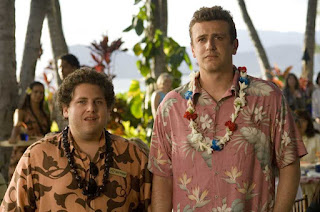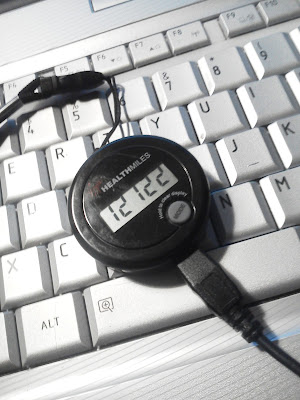Connected
Two months ago (plus a week) I had a conversation with a friend in a coffee shop in Sioux Falls. While there were a lot of topics covered that night – and a large chunk of them have stuck with me – there’s one in particular that has seemed relevant the last few weeks.
When my parents were my age, or at least in my general position – recently graduated, moving away from friends and relatives – they were limited in the ways and extent to which they could stay in contact with people. Long distance phone calls were expensive, mail took awhile … It was hard to stay in touch, and it wasn’t done if there wasn’t a strong desire to make sure it happened.
We live now in a world where falling out of touch is strictly a matter of laziness. Personally, I haven’t made a conventional long-distance phone call in almost six years – since I’ve gotten a cell phone and made that worry obsolete. While I send a fair number of letters (shouldn’t surprise people that I like to write), email and instant messaging make them unnecessary. If I want to talk to someone, there are usually three or four different ways for me to contact them with minimal cost and almost no inconvenience.
We are more connected than we’ve ever been. For instance, I have a street address, a work address, a cell phone, a work phone, three different widely used email addresses (and one that I don’t use), an instant messenger service that will let me receive messages even when I’m not logged on, and Facebook (which really belongs in a class all its own). If you wanted, you could even include this blog in that list – after all, I use it as a way to keep people updated on the events, major and minor, of my life. During all of my normal daily activities, there are at least two ways to contact me, frequently three or four.
Maybe this is why my first three days in Wisconsin were so welcome. I had my cell phone, but no address or internet access. There was only one thread linking me to the rest of the world, and it was beautifully freeing.
Is this one of the reasons that camping is one of the biggest summer pastimes of Americans? Why we desire so much to be on the road? We can acknowledge the convenience of such easy interaction, but we lose something in it – we lose some of our freedom of movement, the ability to drop everything and just go.
As much as it can be a curse, it is equally a blessing. I’m 13 hours away from most of my friends but talking to them is just as easy as it was when I was five minutes away. In that way, I am luckier than my parents; it won’t be materially difficult for me to keep up the friendships I made during school. It is the definition of inescapable connectedness – we can go further than ever before without losing touch with “home base.” While I want to get away from it sometimes, it is also tremendously comforting.
Hmm. Both restricting and freeing … Interesting.
So, the next question for discussion is what modern convenience (think "came into heavy use within the last fifty years") can you not imagine living without?
When my parents were my age, or at least in my general position – recently graduated, moving away from friends and relatives – they were limited in the ways and extent to which they could stay in contact with people. Long distance phone calls were expensive, mail took awhile … It was hard to stay in touch, and it wasn’t done if there wasn’t a strong desire to make sure it happened.
We live now in a world where falling out of touch is strictly a matter of laziness. Personally, I haven’t made a conventional long-distance phone call in almost six years – since I’ve gotten a cell phone and made that worry obsolete. While I send a fair number of letters (shouldn’t surprise people that I like to write), email and instant messaging make them unnecessary. If I want to talk to someone, there are usually three or four different ways for me to contact them with minimal cost and almost no inconvenience.
We are more connected than we’ve ever been. For instance, I have a street address, a work address, a cell phone, a work phone, three different widely used email addresses (and one that I don’t use), an instant messenger service that will let me receive messages even when I’m not logged on, and Facebook (which really belongs in a class all its own). If you wanted, you could even include this blog in that list – after all, I use it as a way to keep people updated on the events, major and minor, of my life. During all of my normal daily activities, there are at least two ways to contact me, frequently three or four.
Maybe this is why my first three days in Wisconsin were so welcome. I had my cell phone, but no address or internet access. There was only one thread linking me to the rest of the world, and it was beautifully freeing.
Is this one of the reasons that camping is one of the biggest summer pastimes of Americans? Why we desire so much to be on the road? We can acknowledge the convenience of such easy interaction, but we lose something in it – we lose some of our freedom of movement, the ability to drop everything and just go.
As much as it can be a curse, it is equally a blessing. I’m 13 hours away from most of my friends but talking to them is just as easy as it was when I was five minutes away. In that way, I am luckier than my parents; it won’t be materially difficult for me to keep up the friendships I made during school. It is the definition of inescapable connectedness – we can go further than ever before without losing touch with “home base.” While I want to get away from it sometimes, it is also tremendously comforting.
Hmm. Both restricting and freeing … Interesting.
So, the next question for discussion is what modern convenience (think "came into heavy use within the last fifty years") can you not imagine living without?


Comments
Answer: The telephone. Most likely the cell phone. While I can (and sometimes do) go without it for a period of time, anything longer than a week when I'm with people I enjoy being around or a couple of days when I'm alone would be too much.